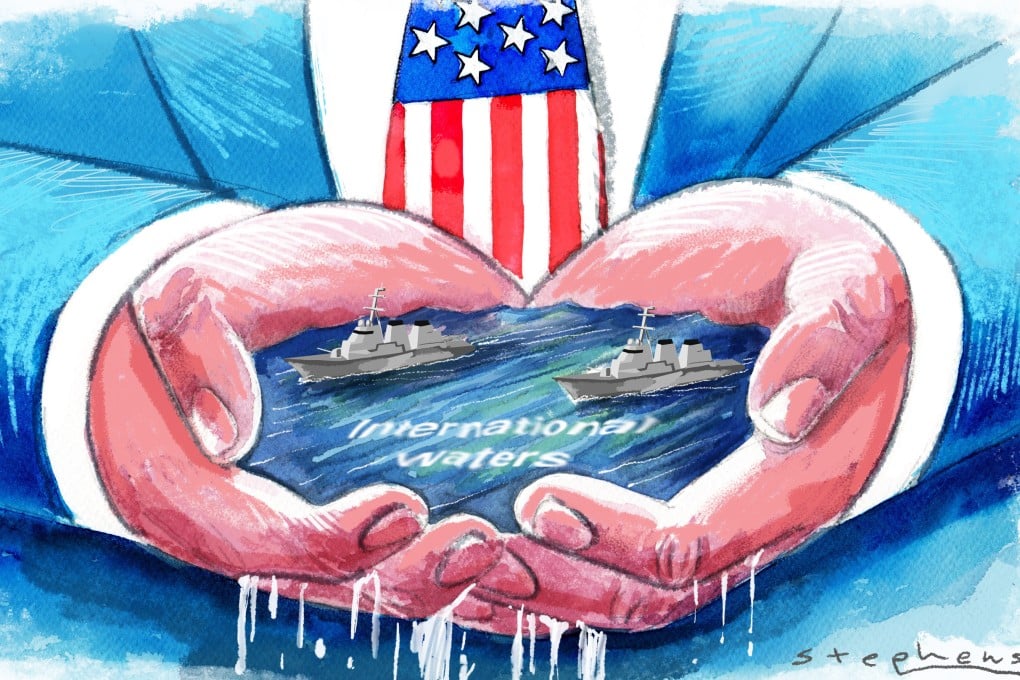Opinion | Taiwan Strait dispute: ‘international waters’ is merely a US concoction to maintain its maritime hegemony
- By reclassifying all waters seaward of territorial seas as international waters, the US can claim all the high seas freedoms while avoiding any of the obligations due to coastal states
- In this sense, the term serves as a panacea for Washington, allowing it to maintain the mobility of its warships in the world’s oceans

Chinese foreign ministry spokesman Wang Wenbin’s assertion that there is no such thing as “international waters” in international law and rejection of the Taiwan Strait as international waters have raised concerns and led to an outcry in both the United States and Taiwan.
Beyond the official disputes, there are media reports that cite Wang’s statement as describing China’s position as claiming sovereignty over the entire Taiwan Strait. Social media accounts in mainland China also ignorantly advocate treating the entire strait as an internal sea, which is not acknowledged in any official Chinese policy.
The 1982 United Nations Convention on the Law of the Sea (UNCLOS) is considered the “constitution of the oceans” governing all maritime activity. Does it have any regulations on “international waters”?
If not, why does the US persist in using this term, not only with regard to the Taiwan Strait but also in other areas beyond territorial seas? And, what is the legal status of the Taiwan Strait? These are questions that need to be addressed to understand the different interpretations and applications of the law of the sea between the disputing parties.
Search the full text of UNCLOS and you will find no provision for “international waters”. However, this term is not new to the US navy or marine lawyers.
